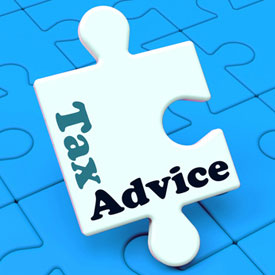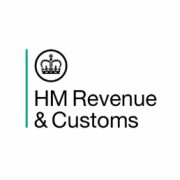 Her Majesty’s Revenue & Customs (‘HMRC’) have now completed a 7 month pilot scheme, held across the North East of England, whereby they closed existing HMRC Enquiry Centres and instead offered those requiring extra help with tax-related issues assistance in a different, more tailored way. With the pilot scheme now complete and deemed a success, all Enquiry Centres across the UK will be closed by 30 June 2014 (just a few days away at time of writing) in favour of the new, more tailored system.
Her Majesty’s Revenue & Customs (‘HMRC’) have now completed a 7 month pilot scheme, held across the North East of England, whereby they closed existing HMRC Enquiry Centres and instead offered those requiring extra help with tax-related issues assistance in a different, more tailored way. With the pilot scheme now complete and deemed a success, all Enquiry Centres across the UK will be closed by 30 June 2014 (just a few days away at time of writing) in favour of the new, more tailored system.
Since the end of May, HMRC have already been rolling out the replacement service, being “a new way to support people who need extra help to get their taxes, tax credits and child benefit entitlements right”. The new service will be more tailored to individual needs and will apparently be more efficient than the Enquiry Centres, which have seen demand drastically falling over recent years. So evidently the new service is also about saving the Government money, which is good to see as it helps to reduce the UK’s overall tax burden and mitigates possible tax increases.
The Replacement Service
The replacement service will be available by telephone or face-to-face via a mobile squad of advisers, who will deal with you on the telephone, visit your home or meet you within your local community, if preferred. The HMRC specialist involved will try to resolve, as fully as possible, all tax and tax credit-related queries during the course of the initial session. This will be aided by liaison, during that session, between the adviser and other experts from different departments within HMRC; the aim being to Read more




 Her Majesty’s Revenue & Customs (‘HMRC’) have now completed a 7 month pilot scheme, held across the North East of England, whereby they closed existing HMRC Enquiry Centres and instead offered those requiring extra help with tax-related issues assistance in a different, more tailored way. With the pilot scheme now complete and deemed a success, all Enquiry Centres across the UK will be closed by 30 June 2014 (just a few days away at time of writing) in favour of the new, more tailored system.
Her Majesty’s Revenue & Customs (‘HMRC’) have now completed a 7 month pilot scheme, held across the North East of England, whereby they closed existing HMRC Enquiry Centres and instead offered those requiring extra help with tax-related issues assistance in a different, more tailored way. With the pilot scheme now complete and deemed a success, all Enquiry Centres across the UK will be closed by 30 June 2014 (just a few days away at time of writing) in favour of the new, more tailored system. Have you ever wondered how much of one’s total income is taken up in tax? And I don’t mean just Income Tax. I mean in ALL taxes paid by ordinary taxpayers throughout the course of a year. Such a figure would need to take into account National Insurance (income tax in all but name, some might say), the insidious Value Added Tax or ‘VAT’ – which on its own is a hefty 20% tax on what is often already taxed money for most ordinary taxpayers, and don’t forget to include Council Tax and finally, of course, Income Tax itself.
Have you ever wondered how much of one’s total income is taken up in tax? And I don’t mean just Income Tax. I mean in ALL taxes paid by ordinary taxpayers throughout the course of a year. Such a figure would need to take into account National Insurance (income tax in all but name, some might say), the insidious Value Added Tax or ‘VAT’ – which on its own is a hefty 20% tax on what is often already taxed money for most ordinary taxpayers, and don’t forget to include Council Tax and finally, of course, Income Tax itself. Part of the Chancellor’s recent Budget included plans to recover tax owed to the Treasury direct from the debtor’s bank account — all done directly and without a Court Order being necessary. This has been criticised widely but HMRC says that only 17,000 people in the UK per year would fall into this potential scenario and that it would only occur for those owing more than £1,000 in unpaid tax or tax credits owed. Moreover they say that they would only target long-standing tax debts from those who had received a minimum of 4 payment demands and whose bank and savings accounts combined had a minimum total balance of £5,000 or more remaining after any tax bad been directly seized. Also the debtor involved will have been issued with a final warning period of 14 days, during which the funds concerned would be frozen, before any tax was directly withdrawn.
Part of the Chancellor’s recent Budget included plans to recover tax owed to the Treasury direct from the debtor’s bank account — all done directly and without a Court Order being necessary. This has been criticised widely but HMRC says that only 17,000 people in the UK per year would fall into this potential scenario and that it would only occur for those owing more than £1,000 in unpaid tax or tax credits owed. Moreover they say that they would only target long-standing tax debts from those who had received a minimum of 4 payment demands and whose bank and savings accounts combined had a minimum total balance of £5,000 or more remaining after any tax bad been directly seized. Also the debtor involved will have been issued with a final warning period of 14 days, during which the funds concerned would be frozen, before any tax was directly withdrawn.